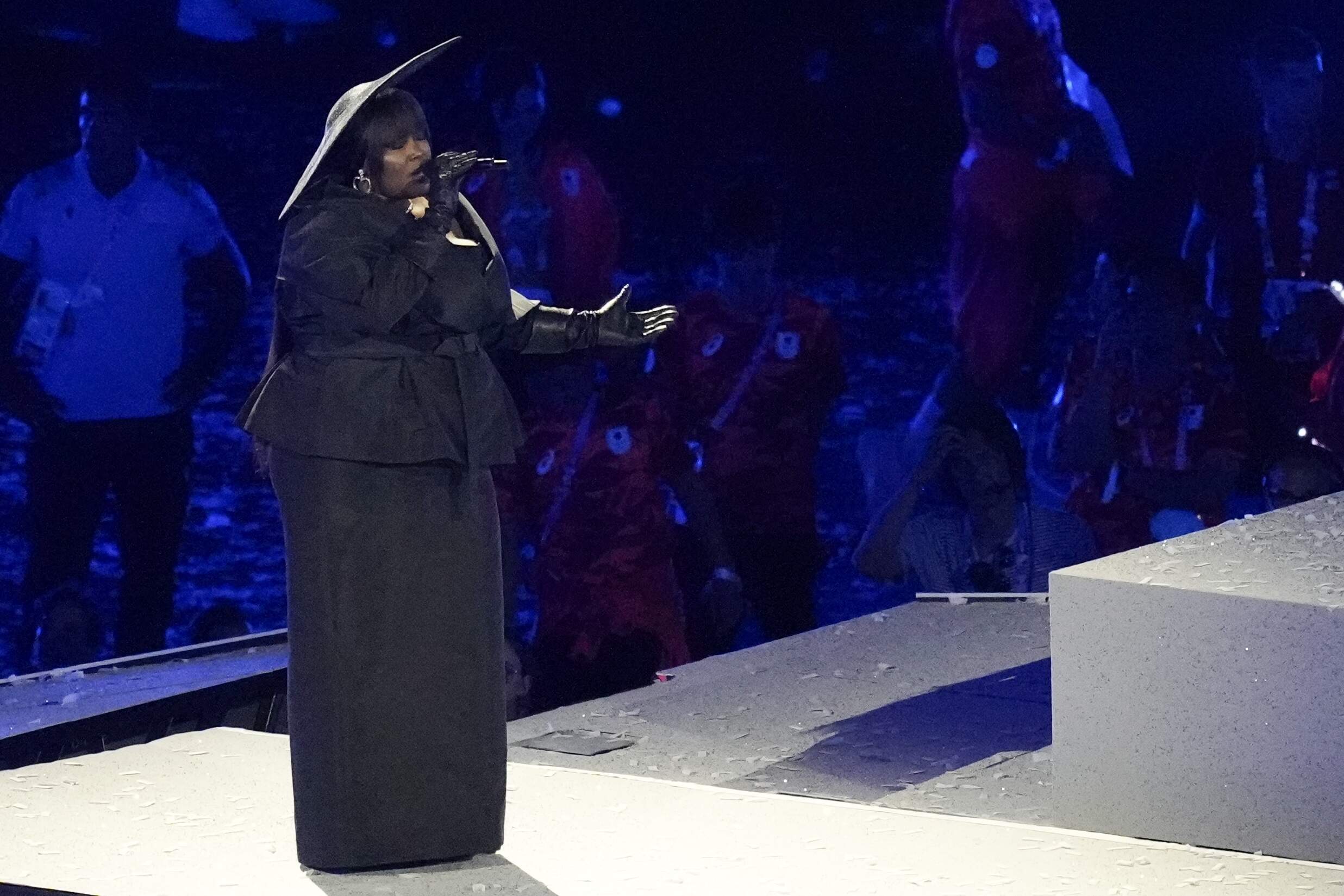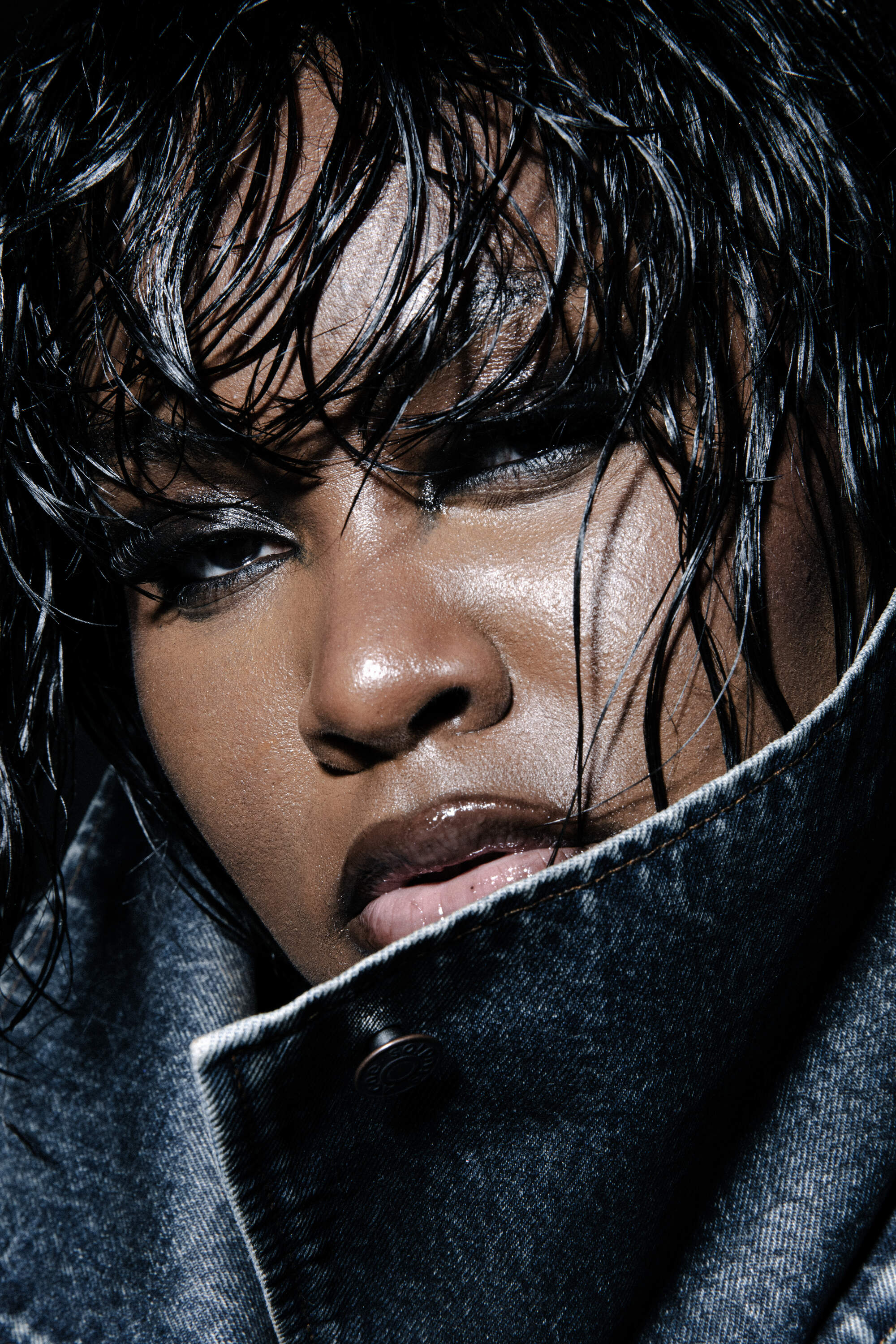Advertisement
‘Versatile, free and bold’: Yseult’s new album is her most ambitious and vulnerable yet

When French singer Yseult’s voice — singing “My Way” by Frank Sinatra — rang out over the Stade de France at this summer’s Olympics closing ceremony, it captured the hearts of millions worldwide.
Now, she has a new album out called “Mental.” Released Sept. 20, the album includes her first songs in English, along with some of the haunting melodies and raw emotion that permeated her Olympics performance.
“My Way” was popularized by Sinatra in the 1960s, but it’s set to the music of the French song "Comme d'habitude” by Claude François. Though the original song was in French, Yseult says the Olympic Committee wanted her to sing the English version.
“I was a little bit scared, because I was like, ‘First, my English is not good. And I have like a French accent,’” Yseult says. “I was like, ‘How can I honor this beautiful song?’”

She prepared a new vocal arrangement — including a captivating high note at the end of the song — to honor the original but add her own twist.
“It was an emotional moment for me,” Yseult says. “I'm just so grateful to be able to live that as an artist.”
Though the Olympics put her on the map for many audience members outside France, she’s not new to the music industry. Yseult got her start in 2013 on Nouvelle Star, a French singing competition show. During her audition, she revealed that her father forbade her from making music and she had to skip class to try out for the show.
Yseult ultimately finished as the runner-up and credits the show with helping her explore herself and her artistry more.
“Nouvelle Star helped me to know a lot of things about myself as an artist and as a human being,” she says. “It's like a moment of my life where I was a little bit lost and at the same time I was so looking forward to a life of music.”
Advertisement
In 2015, she released her first album; it’s self-titled and includes 11 songs. The album delivers a classic French pop sound with upbeat instrumentals, vibrant vocals and sensitive lyrics. Yseult says her early career influences included Madonna, Britney Spears and Christina Aguilera.
“Yseult” peaked at 69 on the French album chart and sold only 5,000 copies. When the album didn’t perform as well as she or her label expected, Yseult terminated her contract with Polydor Records in 2017 and started her own record label called I Have No F****** Idea.

Around this time, Yseult also stepped into the world of high fashion. She says she’s always loved fashion, but it hasn’t always been accessible because of the high price tags on designer items. She credits Olivier Rousteing, creative director of Balmain, with her first foray into the industry.
“He was like, ‘I'm obsessed with your music. And I really want everyone to know and listen to you and see you because I just feel connected with your songs and your lyrics,’” Yseult says. “At first I thought it was a joke because for me Balmain — like Olivier Rousteing — it's like my bible in fashion. And no, it was not a joke.”
Since then, she has appeared on the cover of French magazines and walked in shows for designers including Alexander McQueen and Balenciaga.
Yseult describes her sound as “versatile, free and bold,” and she switched up her sound with her releases post-debut. In 2019, she put out her first single under her new label: "Rien à prouver."
The song was the lead single to her first EP, “Noir,” where Yseult takes her music in a new, moodier direction. She combines R&B beats with lush, silky vocals. She builds on that sound in her second EP, “Rogue,” which she surprise-released in 2019 with no promotion. In a 2020 interview with Enfnts Terribles she said, “With my EP ‘Rouge,’ I wanted to make a project that makes a separation between the early Yseult.”
Yseult’s departure from her self-titled album continues on her newest release “Mental.” She takes inspiration from punk and alternative rock and cites Freddie Mercury, Kurt Cobain and Tame Impala as some of her recent influences. It’s her first release with songs in English, and Yseult says it’s her most in-depth exploration of her emotions yet.
On her song “Suicide,” she sings bluntly about pain and cries for help. She says it feels cathartic to process her emotions through her music. When she wrote “Suicide,” she was aiming to create something more sonically ambitious, and she says music can help in healing.
“I know that this topic is very sensitive,” she says, “but I think everyone can relate to the emergency when you are on the edge.”
Aside from her mental health, Yseult also explores Blackness through narratives told by her friends. Her song “Anger” includes a refrain sung by Yseult juxtaposed with spoken passages. Yseult says that when she was recording the song in Paris, she called up a few friends and asked them to share their experiences of being Black and queer. The song touches on Black joy, the stereotype of an ‘angry Black person,’ and police brutality.
“I speak about all of those topics,” Yseult says. “I'm very loud about it often. And I was like, this time I really want to step back and let my friends talk.”
As her career progresses, the multi-hyphenate says she wants to keep collaborating with other artists — both designers and fellow musicians. She says she wants to tour the U.S. for the first time too. But most of all, she wishes for harmony.
“What's next for me?,” Yseult says, “to be in peace with me and the world.”
Grace Griffin produced and edited this segment for broadcast with Kalyani Saxena and Micaela Rodriguez. Griffin also adapted it for the web.
This segment aired on October 15, 2024.





